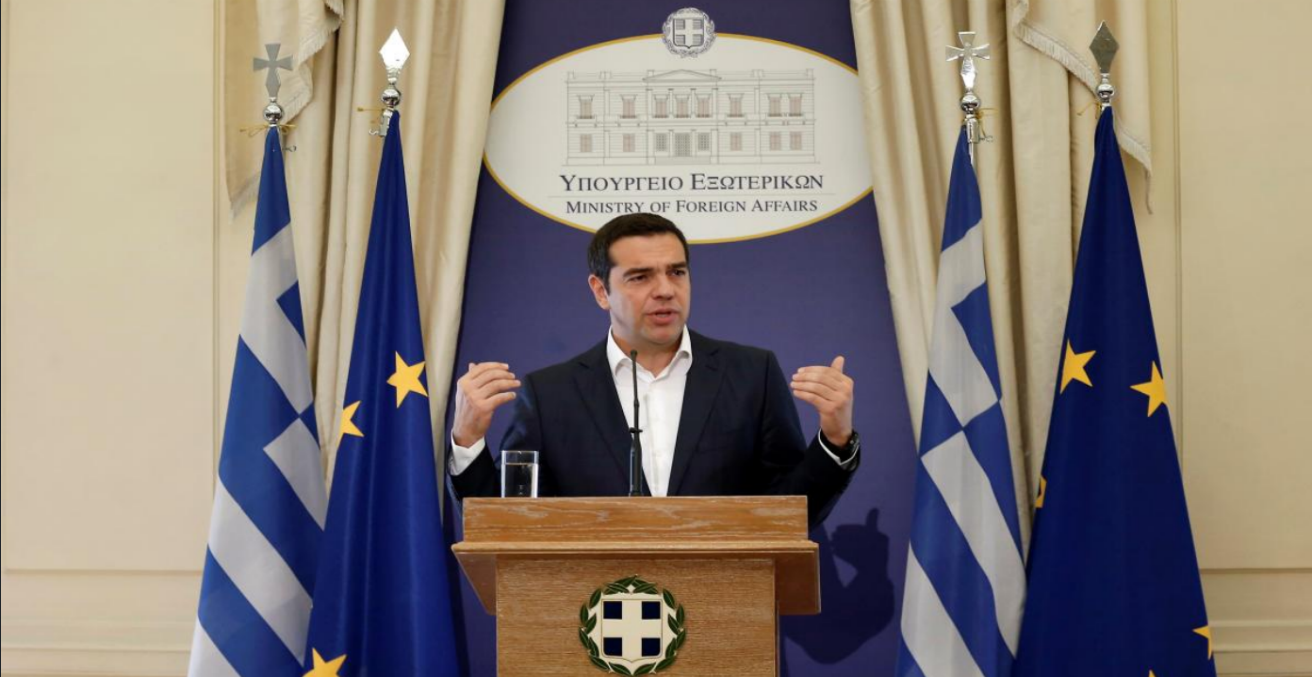Whose Macedonia is it Anyway?

With the Former Yugoslav Republic of Macedonia’s Parliament voting to approve the Prespa Agreement, what are the ramifications for Greece?
Following a heated cabinet meeting that led to the resignation of Greek Foreign Minister Nikos Kotzias, Prime Minister Alexis Tsipras is preparing to ratify the Prespa Agreement. However, uncertainty remains given opposition within Parliament and among the public.
Background
The Prespa Agreement attempts to resolve a controversial dispute that has existed since 1991, when the Yugoslav republic of Macedonia unilaterally declared its independence as The Republic of Macedonia. In 1993, it was admitted as a member of the United Nations under the provisional name of Former Yugoslav Republic of Macedonia (FYROM), following objections from Greece over the use of the name Macedonia. Since then, Greece has exercised its right to veto the accession of FYROM into both NATO and the European Union until the name dispute is resolved.
The name dispute between Greece and FYROM concerns competing claims to the name and history of the region which, by extension, affects the legitimacy of both states. In using the name ‘Macedonia’ and claiming the history of the region as its own, FYROM has aimed to establish itself as the sole legitimate successor of Macedonian history, culture and territory. These claims to legitimacy have offended historicity, the pride of the Greek people and stoked Greeks’ fears of future annexation of their own province by FYROM. Whilst a forced annexation is unlikely, it is not unreasonable to suspect future attempts at annexation on cultural or historical grounds rooted in a false understanding of the right to self-determination.
What has the Prespa Agreement Achieved?
The Prespa Agreement is a compromise for both parties, yet beneficial to both. Athens ensured recognition of ancient Macedonia, its history and symbols as a part of ancient Greek history, whilst also benefiting from the removal of irredentist constitutional provisions that implied claims to a ‘greater Macedonia’. Skopje gained the support of Greece to join both NATO and the EU, and protected the identity, history and language of its people as distinct. Under the agreement, the cumbersome ‘Former Yugoslav Republic’ will become ‘The Republic of North Macedonia’, distinguishing it from the Greek province to its south; the language and ethnicity of its residents will remain known as Macedonian. Both parties recognised each other’s understanding of the term Macedonia as distinct and agreed to not infringe upon this distinction in the future. In cementing this distinction, the Prespa Agreement establishes a framework for future cooperation between the two countries across a range of economic and educational areas.
The Greek view on the Prespa Agreement
The Greek public appear to oppose the Prespa Agreement. Majority public opinion has been against recognition of Greece’s northern neighbour since the dispute began in 1991, a feeling now strengthened by 10 years of economic crisis and hardship. Rallies in Thessaloniki, Athens and around the world have drawn thousands of attendees and, if polls are to be trusted, the Greek people will reiterate their discomfort against the government at the next election. Greek pragmatists however realise the importance of this opportunity to settle the dispute and raise Greece out of its current crisis.
Prime Minister Alexis Tsipras is preparing to ratify the Prespa Agreement in the Greek Parliament, a feat not guaranteed given the outspoken opposition from the governing coalition’s partner Independent Greeks (ANEL), led by Defence Minister Panos Kammenos, as well as the majority opposition party New Democracy.
Kammenos claims to represent majority public opinion in Greece, drawing support from the mass protests held in Thessaloniki and Athens. He is also credited with causing the resignation of the Greek Foreign Minister and proponent of the Prespa Agreement, Nikos Kotzias, on 17 October following a heated cabinet meeting. Tsipras has taken on the foreign minister’s portfolio himself and will now be credited exclusively with the agreement’s success or failure. Should parliament not support the agreement, Tsipras is likely to call for early elections.
Regional outcomes
Whilst in government, Tsipras’ Syriza party has attempted to establish Greece as a regional power. The Prespa Agreement was only one step towards achieving this goal. In an attempt to isolate an ever-provocative Turkey, Athens has sought to settle disputes with Greece’s northern neighbours and establish strong ties with nearby eastern Mediterranean states, collaborating with Egypt, Cyprus and Israel in the fields of energy and defence. Turkey has for many years invested heavily – both economically and culturally – in the Balkans; FYROM was no exception to this. More recently, Ankara has been tenacious in supporting the Internal Macedonian Revolutionary Organization’s opposition to any agreement between FYROM and Greece. Further abroad, global powers continue to weigh in on the dispute. Brussels and Washington support the Prespa Agreement while Moscow actively opposed, with Russian meddling culminating in the expulsion of two Russian diplomats from Greece in July.
The ‘dark horse’ of the region is Albania. Wielding significant influence in Kosovo, Montenegro and in FYROM (where Albanians account for 25 per cent of the population), and considered an unofficial protectorate of Turkey, Albania will likely come to dictate regional stability in the future. Recognising this, Athens has sought to improve Greece’s at times delicate relations with its neighbour. This has culminated in an almost-completed agreement to settle the sea border between the two states. In order for the Prespa Agreement to remain successful, Greece’s relationship with Albania must remain stable.
The region of Macedonia has changed in shape and demographic over thousands of years. Beginning as an ancient Greek kingdom, the Romans, Byzantines, Bulgarians, Serbs and Ottomans have all controlled and settled in the region at one point in history. Rather than disputing who has exclusive claim to the name, priority should be placed on distinguishing between different understandings of ‘Macedonian’, because both parties are different and both parties are Macedonian. The Prespa Agreement aims to make this distinction and as such should be supported. In a region where national foundations are fundamental to the survival of the state, perpetuating a dispute to which there can be only one victor is likely to create further instability which benefits neither party.
Nicholas Conomos is a law student and Bachelor of Arts graduate in Philosophy and Modern Greek Studies from the University of Sydney. He is a former President of the Sydney University Greek Society.
This article is published under a Creative Commons Licence and may be republished with attribution.





